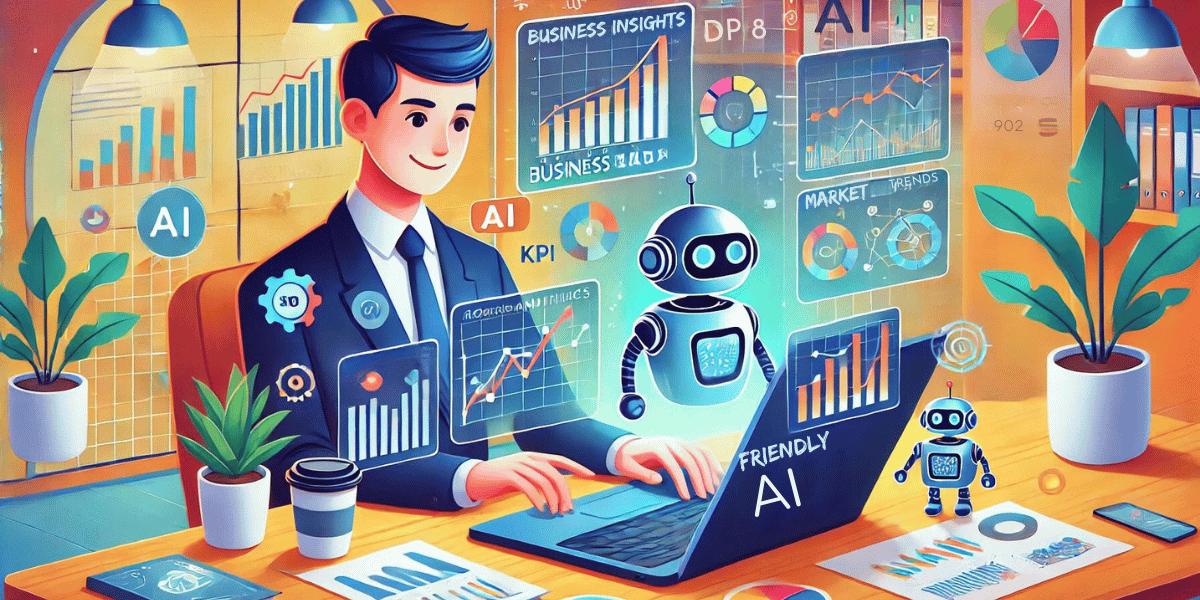What if the secret to unlocking your clients’ potential lies not in your personal insights, but in the power of artificial intelligence? Today, AI coaching tools are changing how coaches work with their clients. They offer personalized advice and insights from data. This new way makes coaching more efficient and effective, letting coaches focus on what’s important—helping their clients succeed.
With more AI solutions available, like chatbots and advanced analytics, coaches can greatly improve their work. This opens up new chances for success in the coaching field.
Key Takeaways
- AI is projected to generate trillions of dollars by 2030, offering huge growth potential in the coaching sector.
- Data-driven insights and personalization through AI enhance the effectiveness of life coaches.
- Popular AI applications include chatbots, virtual assistants, and emotion recognition tools.
- AI tools can automate administrative tasks, allowing more time for client engagement.
- Integration of AI in coaching practices leads to improved client satisfaction and outcomes.
- AI-driven wellness apps monitor clients’ well-being, helping coaches tailor their approaches.
- Choosing the right AI tools requires consideration of compatibility, security, and scalability.
Understanding AI Coaching Tools
AI coaching tools are changing the coaching world. They use artificial intelligence to make coaching better and easier. With chatbots, they help coaches and clients talk faster.
It’s important to know how these tools work. They have many features like:
- Scheduling appointments efficiently
- Tracking and analyzing client progress
- Delivering tailored content based on individual needs
- Facilitating feedback and communication
Groups like the Overdeck Family Foundation and the Bill & Melinda Gates Foundation are looking into genAI tools. They want to see how these tools can make teachers better and improve learning.
Studies are being done to see if AI tools work well in schools. They’re testing these tools in real classrooms. Coaching has been proven to help people grow and succeed in many areas.
It’s key to keep the human touch while using AI in coaching. These tools help a lot, but they shouldn’t replace human coaches. Finding the right balance is crucial for good coaching results.
Benefits of Using AI in Coaching
Using AI in coaching brings many advantages. It makes things more efficient and boosts productivity. A study at Harvard University found that consultants using AI can do 12.2% more tasks and finish 25.1% faster. They also achieve over 40% better quality in their work.
AI automates tasks like scheduling and note-taking. This gives coaches more time to talk with their clients. For example, Otter.ai offers real-time transcription during sessions. This lets coaches focus on their clients more.
Machine learning coaching platforms give coaches valuable insights. AI analyzes behaviors and suggests ways to improve. For example, Happy Scribe turns audio and video into text. This makes it easier to use session material again and track progress.
AI provides real-time feedback through chats, emails, and notifications. This helps clients stay on track with their goals. Interestingly, AI coaching can be just as effective as human coaching if goals are clear and measurable.
AI tools make coaching more engaging by answering questions and offering support. Tools like Jasper help with content creation, and InVideo makes videos easy to make. These tools make coaching more dynamic and complete.
AI is making coaching more accessible to people who need it most. But, it’s important to use AI ethically and set clear goals. This ensures AI helps both coaches and clients the most.
Key Features of AI Coaching Platforms
AI coaching platforms offer many features to make coaching better for both coaches and clients. A big part is chatbot integrations, which give quick support to clients. They make sure questions and concerns get answered fast. With interactive coaching technology, virtual assistants help manage schedules and reminders. This lets coaches focus more on giving quality sessions.
Tools that recognize emotions add another layer to these platforms. They help coaches understand how clients feel during sessions. This lets coaches change their approach on the spot, making coaching more responsive. Automated reporting and analytics help coaches see how clients are doing over time.
Being able to deliver content that matches clients’ goals is a big plus. Coaches can make sure the content keeps clients interested. Tools like Fireflies.ai are super accurate in taking notes and documenting sessions. They make working together easier with detailed summaries and smart search.
| Feature | Description | Benefits |
|---|---|---|
| Chatbot Integrations | Instant support for clients via AI-generated responses | Improves client satisfaction and reduces waiting time |
| Emotion Recognition | Technology that analyzes emotional cues | Enhances coaching responses and adaptability |
| Automated Reporting | Generates performance reports automatically | Saves time and offers valuable insights |
| Personalized Content Delivery | Curates resources tailored to clients’ needs | Increases engagement and effectiveness of sessions |
| Virtual Assistants | Schedules and manages appointments | Freed-up time for coaches to focus on clients |
As companies use AI coaching platforms, interactive coaching tech is becoming key. It helps with employee growth and sets the stage for new coaching methods.
AI Coaching Tools for Enhanced Client Engagement
AI coaching tools are key to better client engagement. They help coaches make communication more personal. For example, Customers.ai lets coaches talk with clients anytime, not just during sessions. This includes support through SMS, Facebook Messenger, and web chat.
Clients get quick answers to their questions, making their experience better. This kind of support is available all the time.
Interactive coaching tech also makes a big difference. It watches how clients act and changes coaching plans as needed. Tools that understand feelings help coaches keep clients motivated. This makes coaching more supportive and helps clients grow.
Many platforms add special features to make coaching better. Habitica uses games to track progress and reward achievements. Zoom and Otter.ai make virtual coaching better with transcripts and AI feedback. HubSpot’s AI CRM also helps coaches understand what clients need, making sessions more effective.
Being able to change coaching based on each client’s goals and style is a big plus. Coaches can use Rocky.ai to create custom growth plans. This makes coaching easy to fit into a busy schedule.
In conclusion, AI tools make coaching more engaging and effective. They help coaches build strong relationships with clients. This leads to better improvement and happiness for everyone.
How AI Improves Data-Driven Insights in Coaching
Artificial Intelligence is changing how coaches work by giving data-driven insights that were hard to get before. AI looks at lots of client data to find patterns and trends. This helps coaches understand what their clients need and like better. It lets them make choices based on solid evidence, not just guesses.
AI’s big impact comes from advanced coaching algorithms. These algorithms check out coaching stories from the start of the coaching journey. Coaches like Martin Seligman use these stories to set goals that fit each client. This makes coaching more effective.
AI helps clients change by asking questions instead of giving answers. This makes clients think more deeply, helping them grow. AI also checks how clients feel right now, which helps coaches tailor their approach. This makes clients more involved in their coaching.
Here are some examples of how AI is used in coaching:
- Gabriella Goddard uses AI to match communication styles with each client’s personality.
- Stephan Lendi simulates conflicts to help clients practice solving them.
- Izabela Lundberg uses AI to give clients personalized chats and support.
More and more, AI tools are becoming a big part of coaching. By 2021, over 56% of companies used AI. Now, 67% of coaching platforms use AI, showing it’s a growing trend.
| AI Integration Example | Impact on Coaching |
|---|---|
| AI-Generated Coaching Narratives | Enhanced goal setting and client understanding |
| Behavioral Change via Questions | Encourages client self-reflection and growth |
| Sentiment Analysis | Facilitates real-time emotional insight |
| Conflict Resolution Simulations | Improved skills in navigating difficult situations |
| Personalized Interaction with AI Agents | Better client engagement and satisfaction |
Integration of Machine Learning in Coaching
Machine learning in coaching opens up new ways to improve results. Coaches can look at a lot of past data to predict what clients might do next. This helps them make better plans over time.
Smart coaching tools use data to make things more personal. Coaches use these tools for important tasks like setting up coaching agreements and following up after sessions. AI tools make these parts of coaching better.

But, there are challenges with using AI in coaching. AI might give bad or wrong advice sometimes. For example, advice meant for cis men and women might not work for non-binary people. This shows AI can have biases.
So, it’s important to set clear goals, get clients to agree, and fix AI biases. When using AI after coaching, it helps with learning and keeps important data for later.
When thinking about coaching sessions, it’s key to focus on being accurate. AI should help, not replace, human smarts. Using AI in follow-ups helps keep learning going and keeps data for future sessions.
It’s also important to make sure voice-to-text and large language models work well together. Keeping user data safe is also crucial. Coaches should be careful with AI apps and keep client info private.
Experts think AI could add about 13 trillion dollars to various industries by 2030. Coaches who use AI well can help employees feel better and do better at their jobs. With better AI tools, these systems could help with specific issues that human coaches spot. This mix of human and AI could make coaching even better.
| Coaching Event | AI Integration Considerations | Benefits |
|---|---|---|
| Coaching Relationship Agreement | Setting expectations, obtaining consent, addressing biases | Stronger client-coach bond, clearer objectives |
| Coaching Session Reflections | Ensuring accuracy, complementing human insights | Enhanced understanding, targeted adjustments |
| Post-Coaching Follow-Up | Data retention and ongoing feedback mechanisms | Continued learning, improved engagement |
Interactive Coaching Technology: The Future of Coaching
Interactive coaching technology is changing how we coach, offering many tools to make coaching more engaging. Virtual coaching assistants are a big part of this change, giving clients help any time of the day. These assistants not only answer questions but also provide resources that match the client’s goals. This makes coaching more dynamic and responsive.
This technology helps coaches understand and meet client needs better. It can recognize emotions by analyzing facial expressions during calls, spotting six basic emotions. This is useful in many areas like psychology, marketing, and healthcare. Speech recognition technology also improves, giving accurate translations of human speech. This means coaches can give instant feedback and advice.
Interactive coaching technology tailors development to each person’s progress, needs, and goals. AI coaches play a big role in this by learning about individual needs and offering specific advice. This lets employees learn from home, set up online sessions easily, and get help when they need it.
AI coaches are always available, making coaching more accessible. Professionals can get information and feedback at any time, which is much better than old coaching methods. AI uses data to make decisions, looking at industry trends and skill gaps. This helps employees get honest feedback for better performance. This new way of coaching increases engagement and makes things more efficient, meeting the needs of different people.
Interactive coaching technology works well with human coaching. While AI offers fast help and advice, many still prefer the empathy of human coaches. Using both technology and human insight will shape the future of coaching.
Exploring Virtual Coaching Assistants
Virtual coaching assistants are key in today’s coaching world. They use AI to handle tasks like setting up meetings, sending out reminders, and talking to clients. This lets coaches focus more on building strong relationships and giving advice that meets each client’s needs.
With more people wanting ai mentorship solutions, these assistants connect with clients in real time. This keeps clients motivated and accountable between sessions. Coaches can give a smooth experience, keeping clients on track with their goals and offering deep support.
It’s clear how effective virtual coaching assistants are. Since the pandemic, over 83% of coaches have used more audio-video tools. These tools offer constant support with chatbots and virtual assistants, answering questions and keeping clients engaged.
AI also makes coaching more personal by looking at each client’s unique situation. This makes coaching more effective by giving advice that fits each client perfectly. Tools like Align help clients set goals and make plans to achieve them.
New tech is opening up new ways to coach, like metaverse coaching and augmented reality. Coaches can now reach people all over the world, growing their client base a lot.
| Virtual Assistant Features | Benefits |
|---|---|
| 24/7 Availability | Supports clients anytime, enhancing engagement. |
| Automated Scheduling | Saves time for coaches by managing appointments. |
| Data Analysis | Personalizes coaching strategies based on insights. |
| Live Interaction | Maintains client motivation and accountability. |
| Progress Tracking | Measures improvements in productivity and satisfaction. |
As technology gets better, virtual coaching assistants are changing how coaching works. They offer a lot of potential for growth and success. With these tools, coaches can give more effective ai mentorship solutions to their clients.
Analytics and Reporting with Advanced Coaching Algorithms
In today’s world, analytics in coaching is key for tracking progress and results. Advanced coaching algorithms help coaches evaluate their clients’ progress. They look at data from sessions and client feedback for deep insights.
With analytics in coaching, coaches get clear insights into their work. These algorithms turn data into reports that highlight what’s going well and what needs work. This helps coaches improve their methods, leading to better results for their clients.

- Set clear, measurable goals for clients.
- Track performance over time with precise metrics.
- Make informed decisions based on concrete evidence.
- Enhance overall coaching effectiveness through refined strategies.
Let’s look at how analytics and advanced algorithms make a difference:
| Feature | Benefit |
|---|---|
| Data Evaluation | Provides a comprehensive view of client progress |
| Feedback Mechanism | Facilitates immediate adjustments in coaching techniques |
| Goal Tracking | Ensures alignment with client expectations and outcomes |
| Strategy Refinement | Leads to enhanced overall coaching performance |
Using analytics and advanced algorithms in coaching creates a better environment for both coaches and clients. These tools make coaching more effective, personalized, and successful.
Creating Personalized Responses with NLP Coaching Tools
NLP coaching tools change how coaches talk to their clients. They look at language patterns to make coaching more personal. Coaches use these tools to give feedback and support that fits each client’s needs. This deepens the bond between coaches and clients.
Here are some ways NLP tools make coaching more personal:
- Customized Interaction: NLP tools check how clients feel and react. This makes conversations more meaningful, improving communication.
- Timely Feedback: Coaches can give feedback right away based on what clients say. This helps clients learn better and stay interested.
- Emotional Recognition: NLP tools spot emotions in language. This helps coaches tackle deep issues more effectively.
- Resource Recommendation: These tools suggest resources that fit a client’s needs and interests, making coaching more effective.
- Engagement Metrics: NLP apps track how engaged clients are. This gives coaches insights into what motivates clients.
Using NLP coaching tools does more than just improve talks. It makes coaching more personal, keeping clients involved. Coaches get to know what each client needs, building strong connections. This leads to better results and satisfaction in coaching.
| Feature | Description | Benefits |
|---|---|---|
| Real-time Feedback | Instant responses based on client input | Enhances learning and engagement |
| Sentiment Analysis | Understanding emotional responses | Improves coaching strategies and support |
| Resource Personalization | Tailored suggestions for clients | Optimizes the coaching experience |
| Engagement Tracking | Monitoring client interactions | Facilitates timely adjustments in approach |
Strategies to Master AI in Your Coaching Practice
To succeed in today’s coaching world, learning how to use AI can greatly improve your work. It’s key to know how to use AI tools well to get the most out of them. Keeping up with new tech helps you stay ahead and informed.
Creating a coaching model that mixes old-school methods with AI can make your work better. This mix makes sessions more engaging and helps clients learn and grow. Trying out AI tools like chatbots or sentiment analysis can also give you new insights that fit your coaching style.
Here are some ways to use AI in your coaching:
- AI can help make outlines for workshops and courses, making creating content easier.
- AI can make lists that grab attention, helping you connect with more people.
- AI can answer common questions, making your programs richer and offering more value.
- AI can summarize content, fitting today’s short attention spans and the trend of learning in bits.
- AI can turn old content into new, reaching more people and keeping them interested.
- AI can fix text to make it clear and professional, helping you communicate better.
- AI can create stories or humor, making your presentations more fun.
Learning about AI helps you tell what you need to make it work for you. Coaches and consultants should use these AI strategies to grow their businesses as the industry changes.
As AI is set to become a big deal by 2025, mastering AI in coaching is a must. Using these technologies gets you ready for the future of coaching. It helps you support your clients well and stay competitive in a changing field.
Conclusion
AI is changing coaching in big ways, making how coaches work and connect with clients better. With AI tools, coaches get to use data to improve their work and make it more personal. This leads to better results and happier clients.
Looking ahead, technology will keep changing coaching for the better. Studies show that 70 percent of people get better at work and skills after coaching. AI coaching is even more effective in reaching personal goals than old methods. For more info, check out how AI is changing coaching here.
AI is growing, but human coaches still bring something special like empathy and deep knowledge. The key for coaches is to use technology without losing the personal touch. They need to keep building strong relationships and helping clients grow, offering a full coaching experience that meets their needs.




